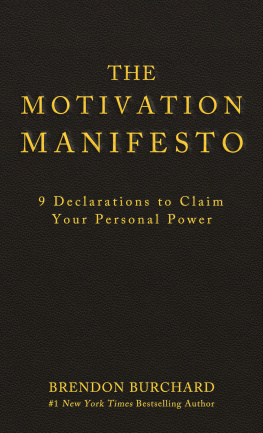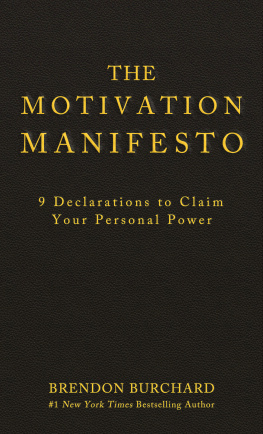Praise for The Mindful Manifesto
A wonderful primer on the art and science of mindfulness. Includes really practical advice for easing the speed and anxiety of modern life by altering our habits of mind.
Susan Piver, founder of The Open Heart Project and author of How Not to Be Afraid of Your Own Life and The Wisdom of a Broken Heart
The Mindful Manifesto is a wonderful overview of mindfulness meditationcomprehensive, honest, and compassionate. This book helps make mindfulness accessible to all.
Sharon Salzberg, author of Lovingkindness and Real Happiness
This thoughtful guide explains both why we should be more mindful andso importanthow to do it. Written in a warm-hearted and peaceful voice, this book is clear, direct, down-to-earth, and profound.
Rick Hanson, Ph.D., author of Buddhas Brain
If you want to know why mindfulness has gone mainstream, read the first chapter. If you want to learn how it can help you, read the rest of the book. Its as clear a presentation of mindfulness practice as youll find anywhere.
Barry Boyce, editor of The Mindfulness Revolution and www.mindful.org
A lucid and highly practical guide to how mindfulness techniques can be of enormous benefit to our health, relationships, and peace of mind.
Mick Brown, author of The Spiritual Tourist and The Dance of 17 Lives
The Mindful Manifesto offers a fresh perspective on ancient wisdom. It is authentic, timely, and hugely needed.
Peter J. Conradi, author of Going Buddhist and Iris Murdoch
A thoroughly well-written book that will serve as an excellent guide for anyone wishing to understand or practice mindfulness.
Dr. David Hamilton, author of How Your Mind Can Heal Your Body and Why Kindness Is Good for You
An excellent manifesto for making small mindful changes that can make a huge difference in how you go through life. The authors are engaging, humorous, and candid about some of the common struggles with mindfulness, including their own. Heartily recommended.
Marsha Lucas, author of Rewire Your Brain for Love
The Mindful Manifesto helps us to be more and to do less. Its old wisdom backed by modern science, beautifully described.
Professor Richard Layard, Well-Being Program Director, London School of Economics
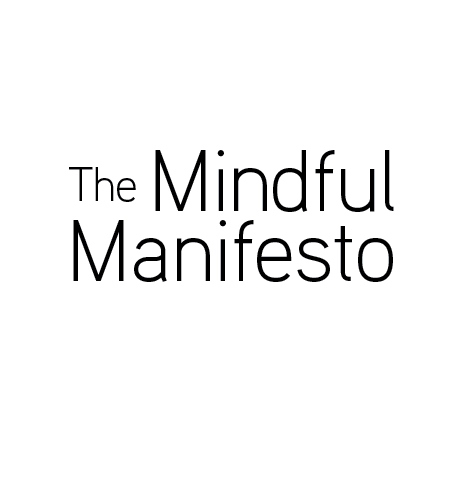

Copyright 2010 by Jonty Heaversedge and Ed Halliwell
Originally published in Great Britain in 2010 by Hay House UK Ltd.
Published and distributed in the United States by: Hay House, Inc.: www.hayhouse.com Published and distributed in Australia by: Hay House Australia Pty. Ltd.: www.hayhouse.com.au Published and distributed in the United Kingdom by: Hay House UK, Ltd.: www.hayhouse.co.uk Published and distributed in the Republic of South Africa by: Hay House SA (Pty), Ltd.: www.hayhouse.co.za Distributed in Canada by: Raincoast: www.raincoast.com Published in India by: Hay House Publishers India: www.hayhouse.co.in
Design: Tricia Breidenthal
All rights reserved. No part of this book may be reproduced by any mechanical, photographic, or electronic process, or in the form of a phonographic recording; nor may it be stored in a retrieval system, transmitted, or otherwise be copied for public or private useother than for fair use as brief quotations embodied in articles and reviewswithout prior written permission of the publisher.
The author of this book does not dispense medical advice or prescribe the use of any technique as a form of treatment for physical, emotional, or medical problems without the advice of a physician, either directly or indirectly. The intent of the author is only to offer information of a general nature to help you in your quest for emotional and spiritual well-being. In the event you use any of the information in this book for yourself, which is your constitutional right, the author and the publisher assume no responsibility for your actions.
Library of Congress Control Number: 2011941311
Hardcover ISBN: 978-1-4019-3536-8
Digital ISBN: 978-1-4019-3537-5
15 14 13 12 4 3 2 1
1st edition, September 2010
2nd edition, April 2012
Printed in the United States of America
There comes a time when any secret will get out into the world. No matter how hard we try to keep it hidden, it will be revealed, made manifest. For centuries, the principles and practices of mindfulness meditation were pretty much hidden away. You had to travel a far distance, perhaps to Asia, to see a teacher who might help you with the inner work of this meditation.
In the 1960s there was some excitement when certain forms of concentration meditation were taught in the West. Western scientists were intrigued: what were the psychological and physiological effects of such practices? The new scientific instruments of the day were used to measure bodily reactions such as heart rate and minor fluctuations in sweating. They showed that these meditations were as effective as deep relaxation techniques in calming the mind and body, and bringing about states of well-being.
But thats as far as it went. Because already-accepted procedures in common use in the West were just as effective, anything extra about the meditation was deemed to be unnecessary. Why recite mantras when identical effects could be found without them? Meditation as a technique for reducing stress was reduced to a minority activity within science and pursued by a relatively small group of distinguished scientists.
Then something changed. Because we are still living through the effects of this change, we cant be sure exactly what happened, but the dispersion of Tibetan and Vietnamese monks in the second half of the 20th century may lie at its root. The West had been prepared for this, in some ways, from the interest in Zen that had been an important cultural influence in the United States from the 1950s onward. Also influential were some Westerners who travelled to Asia (especially Thailand and Burma) and brought back a different emphasiswhat they called Insight (or Mindfulness) Meditation.
Mindfulness meditation doesnt just emphasize focusing and refocusing attention on a single point, but invites people to combine this training with a receptive, open awareness that might, if cultivated, offer a direct sense of what is arising, moment by moment, in the external and internal worlds. It also offers a way of responding to these eventsand our reactions to themwith open-hearted compassion.
Gradually the message became clearer: we dont need to get rid of our stress, tiredness, and sadness, but to see their patterns clearly, and meet them with an open and friendly curiosity. This is different from our habitual reaction, which is to react to something we dont like by either pushing it away or brooding about it. Because we have never been taught any other way to meet our distress, we dont realize how much our habits of avoidance or brooding are making things worse, turning momentary tiredness into exhaustion, momentary fear into chronic worry, and momentary sadness into chronic unhappiness and depression. So it isnt our fault that we end up exhausted, anxious, or depressed. We have been given only certain tools to deal with things we dont like: get rid of it, work harder, be better, be perfectand if we fail to make things different, we too easily conclude that we are a failure as a person. This is a recipe for a troubled world. As Jon Kabat-Zinn has said, we need, literally and metaphorically, to come to our senses.
Next page
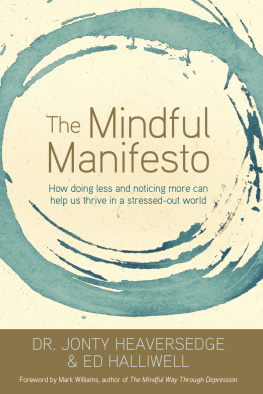
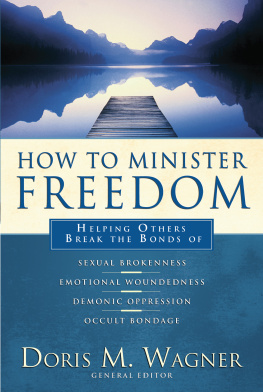
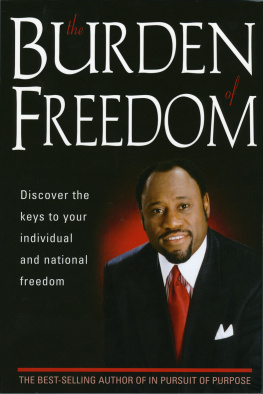
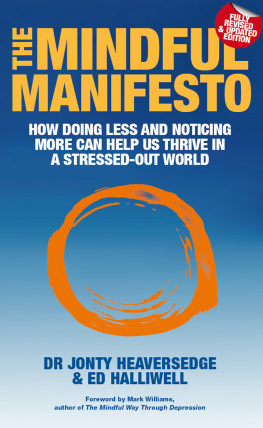

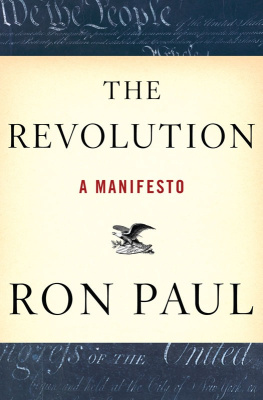
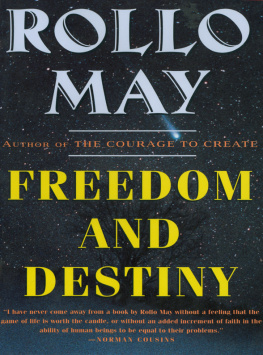

![Blackford - Freedom of religion [and] the secular state](/uploads/posts/book/167779/thumbs/blackford-freedom-of-religion-and-the-secular.jpg)

